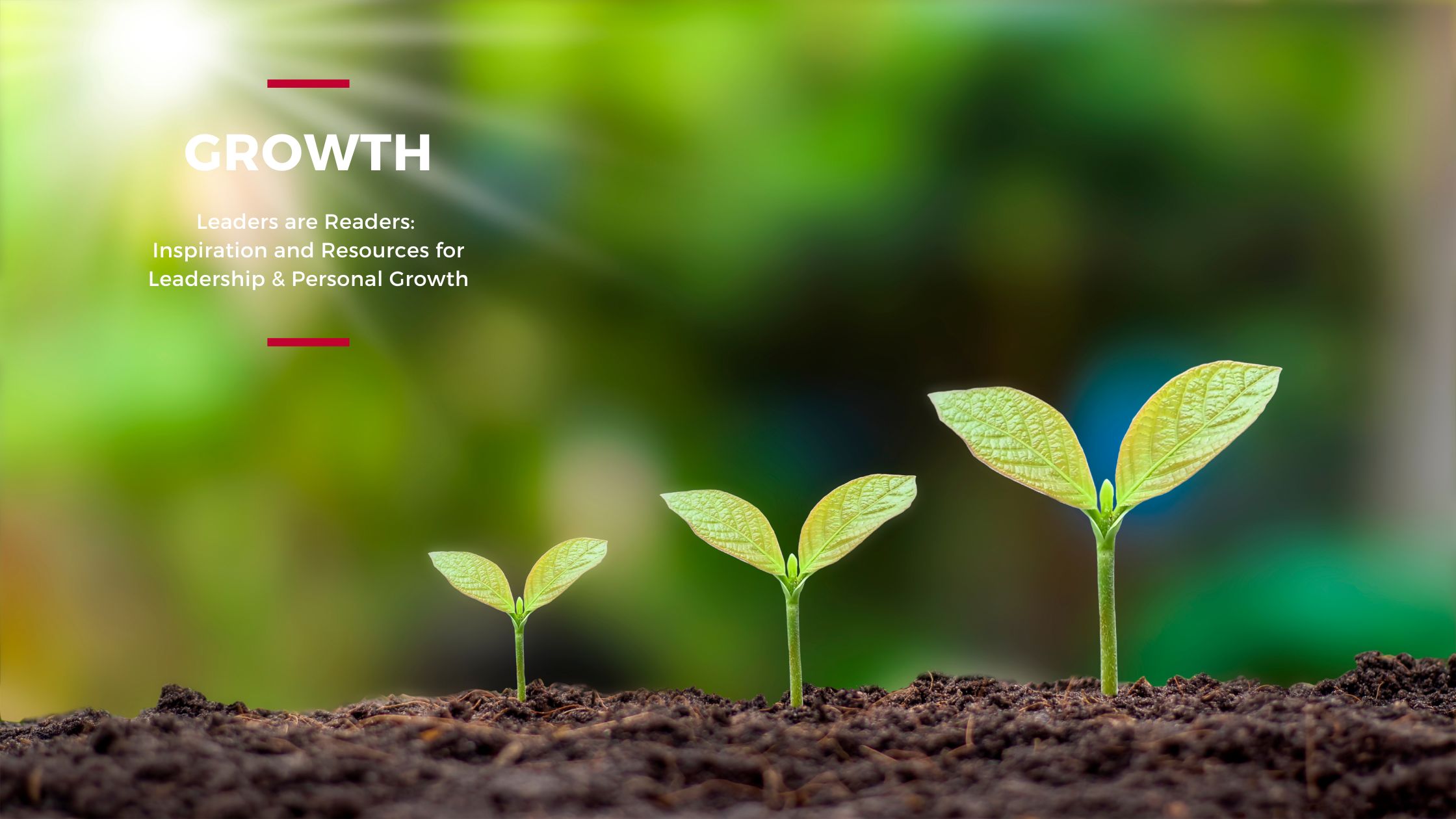Hello Friends!
Spring may still be at least a few weeks away, but the first subtle signs of seasonal shift are showing. After my winter of hibernation and balance, my thoughts are now turning to the buds of spring. And that means growth! 😊
So I thought Growth would be a good theme for this week’s newsletter. How do we grow? What needs to be in place to ensure that we can, and do, grow? What are some of the less obvious and less discussed elements of growth?
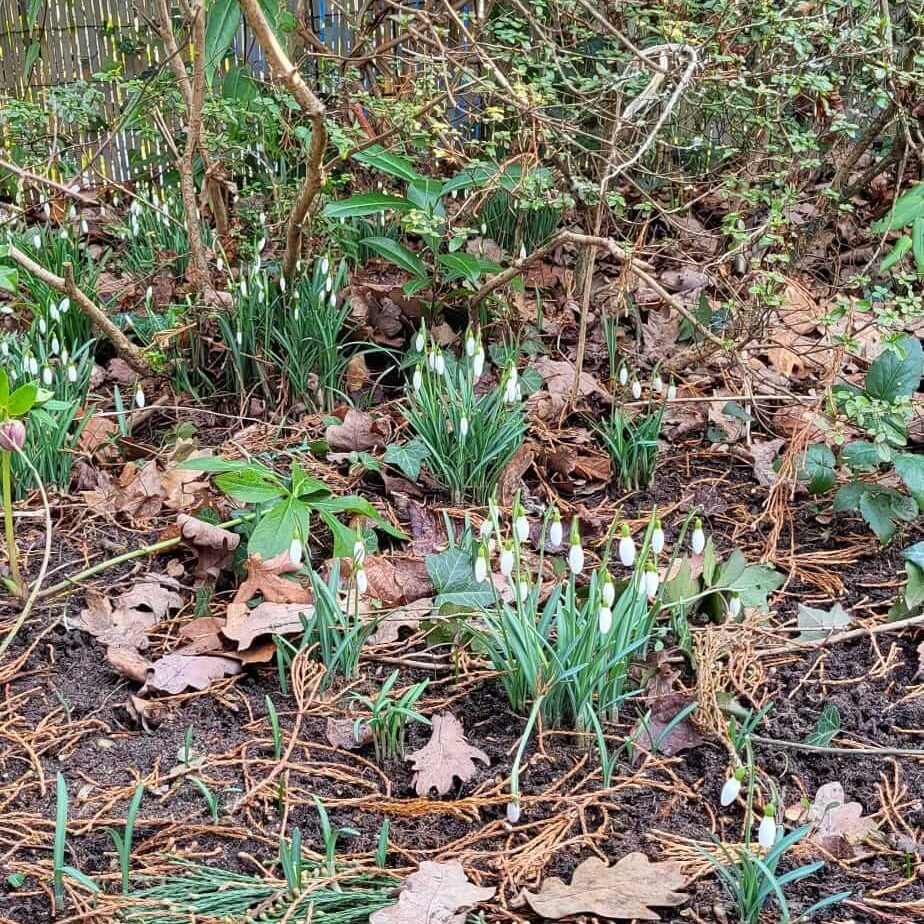
CHANGE…
The Theory of Adult Development was hands down the most interesting concept I learned about last year. Exploring the differences between the Socialized Mind and the Self-Authoring Mind has been a fascinating journey of discovery for me, both personally and professionally.
So imagine my sheer joy when I discovered that Brené Brown was interviewing one of the constructors of the Theory of Adult Development, Lisa Lahey!! This was mind-blowing for me.
In this two-part podcast, Brené not only interviews Lisa Lahey but is actually coached by her! It’s a brilliant conversation and allows us to experience a world thought leader being vulnerable, raw, and real. The line that resonated most with me, was this:
“I am perpetuating the behaviour that is depleting me.”
Wow. Record scratch moment. Time stood still. Is this ever me! So how to change and grow out of being your own worst enemy?? Listen to both parts of this incredible interview here and here.
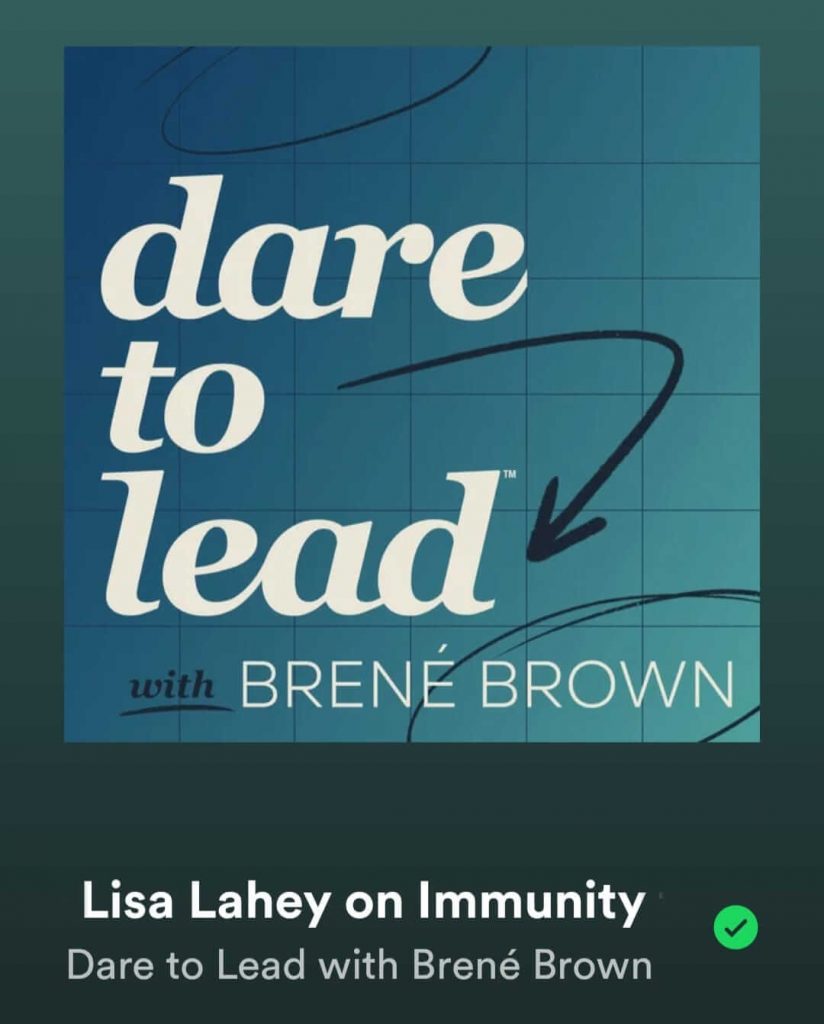
MINDSET…
Growth is at least as much about mindset as it is about actions. Carol Dweck literally wrote the book on Mindset and how much of an impact a growth vs fixed mindset has:
“Individuals who believe that their talents can be developed (through hard work, good strategies and input from others) have a growth mindset. They tend to achieve more than those with a more fixed mindset (those who believe their talents are innate gifts.)”
The subtitle to the book is “Changing the way you think to fulfill your potential” and I believe that is indeed a key component to growth: how you think. You can’t grow with a fixed mindset.
[I’ll be completely honest here and say that although I think the concept of mindsets is incredibly impactful, I personally found the book quite dry. I judge a book by how much I remember from it and how often I quote the contents. In this particular case, I don’t recall much from the book – all I know about mindset I learned elsewhere, despite the concept originating in this book.]
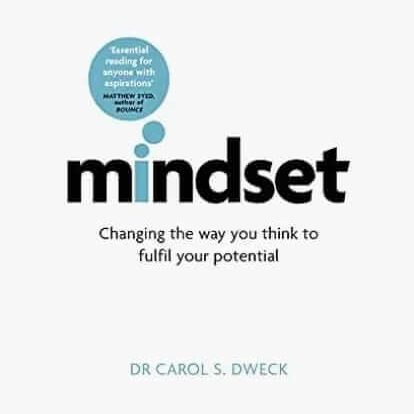
ASKING FOR HELP…
One of my professors at university used to say there was a magic question. It was: “I need help. Can you help me?” He believed that no one was able to say no to such a direct request for help.
We don’t grow in a vacuum. Although we hear a lot about self-development and being our best selves, it is almost impossible to grow without external input.
I really liked this perspective on asking for help from Muriel Wilkins of HBR’s Coaching Real Leaders:
“Is asking for help from others a critical part of one’s leadership journey and career in order for them to grow? And in order for them to lead in a sustainable way?”
I love learning from and with others, and think that leaders in particular too often feel that growth and development can only be achieved alone. Choosing to get help from others can have such a positive impact on how – and how much! – you grow.
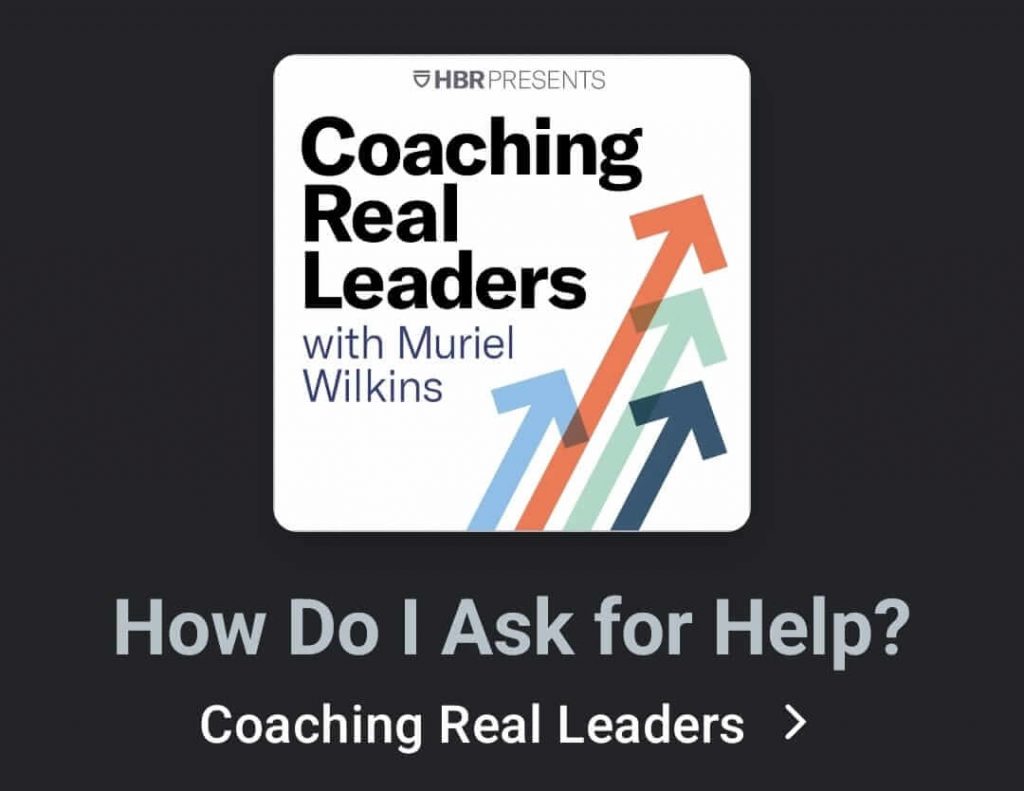
BETTER, NOT PERFECT…
I wrote a newsletter a while ago on Perfectionism – a topic I think many of us can relate to! Sometimes the need to be or do things perfectly can block our interest in growth. If you have to do something perfectly, will you start something if you aren’t already good at it?
The Long and the Short of It podcast did an episode recently on Lowering the Bar. Podcast co-host Pete Shepherd realized that “if I lowered my bar for what success looks like, I would find that I achieve that version of success a lot easier.”
How often to we set ourselves up to fail by trying to be perfect from the beginning??
As Margaret Atwood says, “The goal is better, not perfect”. Yes!!
Jen Waldman (the other podcast co-host) combined growth with mindfulness:
“Adjust your expectations based on the reality check of the moment that is actually existing.”
A brilliant piece of advice!
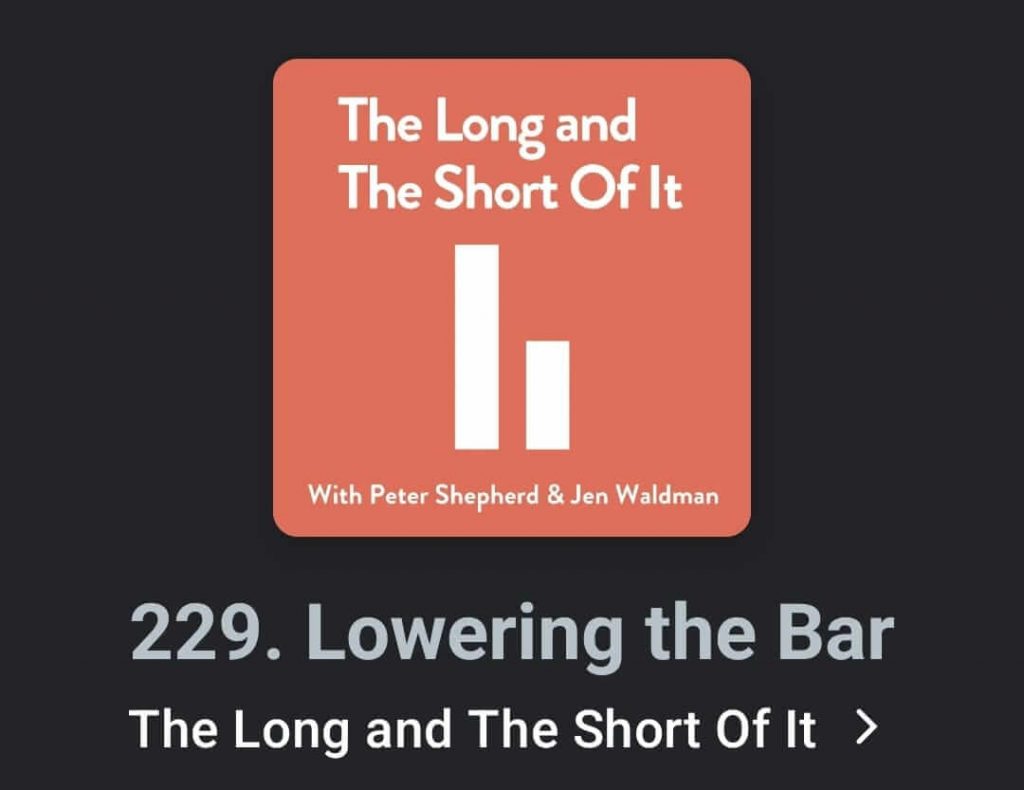
GROWTH IS NOT FOR METRICS…
Too often we conflate things that can be measured with our priorities. It can be much easier to work towards a goal that has metrics. Believe me, I get it!! I am after all the person who has an Excel spreadsheet of all the books she has read since 1998, complete with statistics!! So I know the joy of metrics.
But not all good things need – or have! – metrics. And growth is often in that category. Growth does not mean becoming more productive or efficient.
This section of Ingrid Fetell Lee’s Joyletter from February 16, 2023 really brings that home:
We are living in the age of optimization.
It seems like every week, there are a dozen more health hacks that will totally change my life. According to Twitter, I should be using AI to be more efficient at work (so it doesn’t take my job entirely) and my inbox is bursting with tips and tricks for being BETTER.
But what are we doing with all the time and health and freedom we’re supposedly buying ourselves? Not having sex. Not getting together with friends. (Both are at historic lows.) Not having fun. (Leisure time? Also on the decline for most working age people.)
No, by the looks of it, we’re using that time to… keep optimizing. More hustling. More organizing. More scrolling in search of time-saving hacks.
Where did we get the idea that an efficient life is a good one?
Diane Ackerman writes, “I don’t want to get to the end of my life and find that I have just lived the length of it. I want to have lived the width of it as well.”
The width of life may not be efficient or neat. But it’s where the LIFE is.
I couldn’t agree more!!
Growth is a choice. And in my humble opinion, one of the joys of life. Even without metrics. 😊
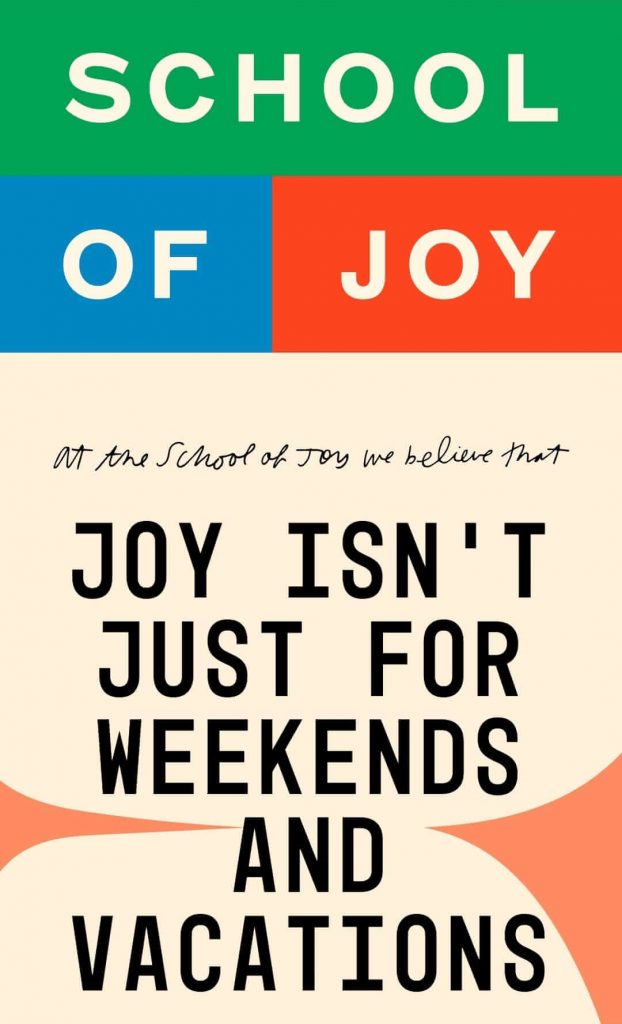
WHAT I’M READING…
One of the best parts of being in a book club is reading books that I might not choose for myself ordinarily. I can get into reading ruts – all mysteries, or all historical fiction novels for example. Klara and the Sun by Kazuo Ishiguro was last month’s book club pick and it was a story I don’t think I would have chosen on my own. Science fiction isn’t my usual genre and frankly I find the dystopian viewpoint usually a bit of a downer. However, this was a really good story. I enjoyed reading it. It made for a scintillating discussion in the book group too!
It’s the story of Klara, an “Artificial Friend” or AF – essentially a humanoid robot that is the companion to Josie, a “lifted” teen. Like many children, Josie has been genetically enhanced for better academic ability, which she puts to use via online schooling from the best educators around the world. Lifted children learn from home and are therefore quite socially isolated. Thus the need for an AF.
The story, told from the perspective of Klara, brings multiple complex viewpoints to light, wrapped up in a family story. Originally the story was actually written by Ishiguro for teens. It touches on artificial intelligence, emotional intelligence, genetic enhancement, racism, unconscious bias, classism, climate change, consumerism and much more. It really stimulated so many thoughts and provoked a lot of deeper discussion in our group. Worth the read!

Are you a fan of growth? What elements do you need to have in place in order for growth to be a positive challenge?
Hope your February is going well, and a few signs of Spring are starting to show where you are too!
Be emotional. Stay healthy!
Hugs,



